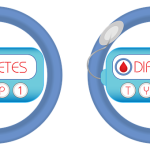Chromium is an essential trace mineral that plays a crucial role in various bodily functions. It is required in small amounts for the metabolism of carbohydrates, fats, and proteins. One of its main functions is to enhance the action of insulin, a hormone that regulates blood sugar levels.
In simpler terms, chromium helps your body use insulin more effectively, which is important for maintaining stable blood sugar levels. This is particularly relevant for individuals with insulin resistance or diabetes.
Additionally, chromium is often associated with weight management as it may help reduce cravings for carbohydrates and control appetite, which can be beneficial for those looking to maintain a healthy weight.
What does insulin do in the body?
Insulin is a hormone produced by the pancreas, and its primary role is to regulate blood sugar (glucose) levels in the body. Here’s a simplified explanation of what insulin does:
- Glucose Uptake: When you eat, especially foods containing carbohydrates, your digestive system breaks down these carbohydrates into glucose, which enters the bloodstream. Elevated blood glucose levels signal the pancreas to release insulin.
- Cellular Uptake: Insulin acts like a key that unlocks the cells, allowing them to take in glucose from the bloodstream. The cells use this glucose for energy, which is essential for various bodily functions.
- Storage of Excess Glucose: If there’s an excess of glucose in the bloodstream (common after a meal), insulin helps store this extra glucose in the liver as glycogen. This stored form can be converted back to glucose when needed, maintaining blood sugar levels within a healthy range.
- Inhibition of Glucose Production: Insulin also inhibits the liver from releasing too much glucose into the bloodstream. This helps prevent excessive elevation of blood sugar levels.
In summary, insulin plays a crucial role in maintaining balanced blood sugar levels by facilitating the uptake and storage of glucose in cells. It ensures that cells receive the energy they need and prevents an excess of glucose in the bloodstream, which can be harmful. Disruptions in insulin function can lead to conditions like diabetes, where blood sugar regulation is impaired.
Sources of Chromium
Chromium is a trace mineral, and while it is required in small amounts, it plays a significant role in various bodily functions. Here are some common food sources of chromium:
- Broccoli: This green vegetable is not only rich in fiber and vitamins but also contains a good amount of chromium.
- Whole Grains: Foods like whole wheat, barley, oats, and brown rice are good sources of chromium.
- Meat: Lean meats, such as chicken and turkey, can provide a decent amount of chromium.
- Nuts and Seeds: Some nuts and seeds, like Brazil nuts and sunflower seeds, contain chromium.
- Brewer’s Yeast: This nutritional yeast often used in cooking is a good source of chromium.
- Vegetables: Apart from broccoli, other vegetables like potatoes, green beans, and tomatoes also contain chromium.
- Spices: Some spices, such as black pepper, can contribute to your chromium intake.
It’s important to note that the chromium content in these foods can vary based on factors like soil quality and farming practices. While these foods provide dietary chromium, some individuals may choose to use chromium supplements to ensure they meet their nutritional needs. As always, it’s recommended to consult with a healthcare professional before starting any new supplements.
Purium Products that Contain Chromium
Purium products, known for their commitment to natural ingredients, incorporates chromium as part of their nutritional formulations to support overall health and well-being.
The Importance of Trace Minerals
Trace minerals are essential nutrients that the body needs in relatively small amounts but play crucial roles in various physiological functions. Despite their requirement in trace amounts, these minerals are vital for maintaining overall health and well-being. Here are some key points highlighting the importance of trace minerals:
- Cofactors in Enzyme Reactions: Many trace minerals act as cofactors for enzymes, facilitating and regulating biochemical reactions in the body. Enzymes are essential for processes like digestion, energy production, and detoxification.
- Cellular Function: Trace minerals are involved in the proper functioning of cells, supporting processes such as cell division, growth, and repair. They contribute to the structural integrity of cells and help maintain cell membrane stability.
- Immune System Support: Certain trace minerals, such as zinc and selenium, play crucial roles in supporting the immune system. They are involved in the production and function of immune cells, helping the body defend against infections and illnesses.
- Antioxidant Defense: Some trace minerals, like copper, manganese, and selenium, act as cofactors for antioxidant enzymes. These enzymes help neutralize free radicals, reducing oxidative stress and protecting cells from damage.
- Bone Health: Trace minerals such as zinc, copper, and manganese are involved in bone formation and maintenance. They contribute to the development and strength of bones and connective tissues.
- Hormone Regulation: Trace minerals are essential for the proper functioning of hormones. For example, iodine is a key component of thyroid hormones that regulate metabolism, growth, and development.
- Electrolyte Balance: Minerals like sodium, potassium, and chloride are considered electrolytes. They play a crucial role in maintaining fluid balance, nerve function, and muscle contraction.
- Blood Clotting: Trace minerals like calcium and magnesium are involved in blood clotting processes, ensuring proper wound healing and preventing excessive bleeding.
While trace minerals are necessary for health, it’s important to maintain a balanced and varied diet to ensure an adequate intake. Deficiencies or excesses of trace minerals can lead to health problems, so it’s advisable to seek guidance from healthcare professionals or nutritionists to optimize your nutritional intake.
Takeaway
In conclusion, chromium, though required by the body in trace amounts, plays a pivotal role in maintaining overall health. Its involvement in insulin function is particularly noteworthy, as it aids in regulating blood sugar levels and supporting energy metabolism. Found in various foods such as broccoli, whole grains, and lean meats, chromium contributes to enzyme reactions, cellular function, and immune system support. As a vital trace mineral, chromium underscores the interconnected nature of nutritional elements in promoting well-being. Whether obtained through a balanced diet or supplements, understanding the significance of chromium highlights the importance of considering all essential nutrients for optimal health and vitality.
Sources:
https://www.webmd.com/diet/supplement-guide-chromium
https://ods.od.nih.gov/factsheets/Chromium-HealthProfessional/









